Andrej Čampa
Self-sufficient Method for Event Localization and Characterization of Power Transmission Lines Based on Traveling Waves
Apr 04, 2023



Abstract:We propose a self-sufficient online method that simultaneously performs transmission line characterization and event localization. Our proposed method eliminates the need for offline transmission line characterization or line parameter modeling based on the transmission line model. The method is based on traveling wave theory and adding a measurement device in a double-sided traveling wave event localization setup. The theoretical background of the method is derived, which is based on a complex continuous wavelet transform. The accuracy of the transmission line characterization method is evaluated using a frequency-dependent transmission line simulation model. The method was developed independently of the type of event and is evaluated in a variety of experimental setups that take into account different lengths of the monitored line section, line characteristics, location of the third measurement device, and location of the event. The localization accuracy is compared with other proposed online methods. The proposed method improves event localization and exhibits high characterization accuracy within a relative error of 1 %, even when mimicking real environmental conditions where noise and desynchronization between measurement devices occur.
On-Premise Artificial Intelligence as a Service for Small and Medium Size Setups
Oct 12, 2022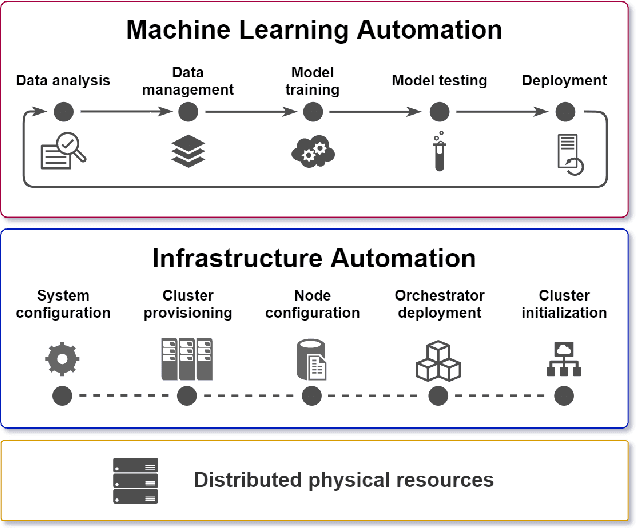
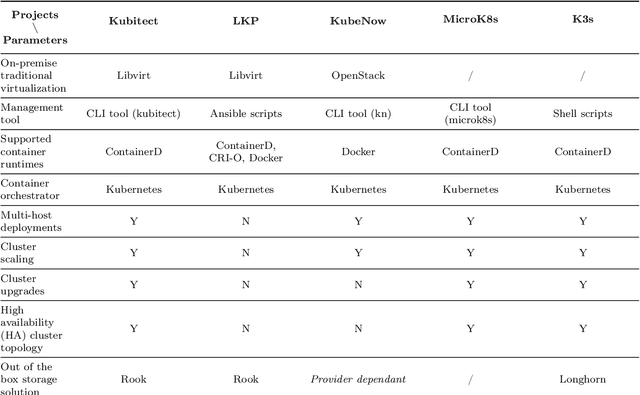
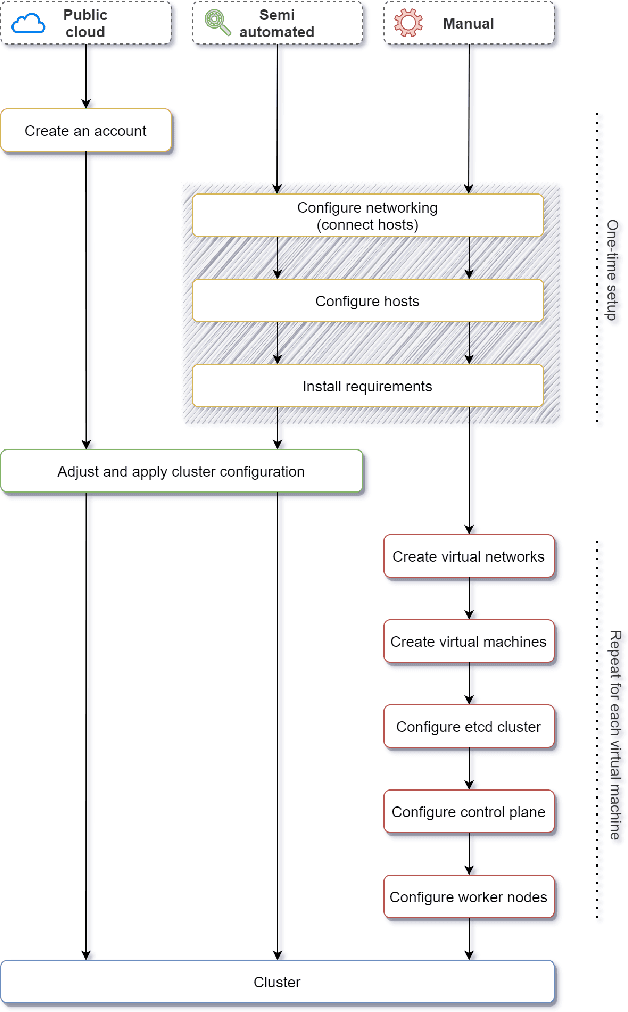

Abstract:Artificial Intelligence (AI) technologies are moving from customized deployments in specific domains towards generic solutions horizontally permeating vertical domains and industries. For instance, decisions on when to perform maintenance of roads or bridges or how to optimize public lighting in view of costs and safety in smart cities are increasingly informed by AI models. While various commercial solutions offer user friendly and easy to use AI as a Service (AIaaS), functionality-wise enabling the democratization of such ecosystems, open-source equivalent ecosystems are lagging behind. In this chapter, we discuss AIaaS functionality and corresponding technology stack and analyze possible realizations using open source user friendly technologies that are suitable for on-premise set-ups of small and medium sized users allowing full control over the data and technological platform without any third-party dependence or vendor lock-in.
On Designing Data Models for Energy Feature Stores
May 09, 2022
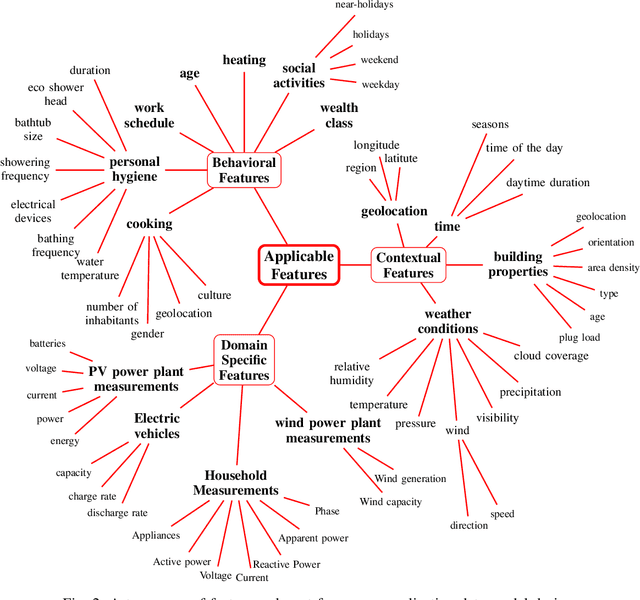
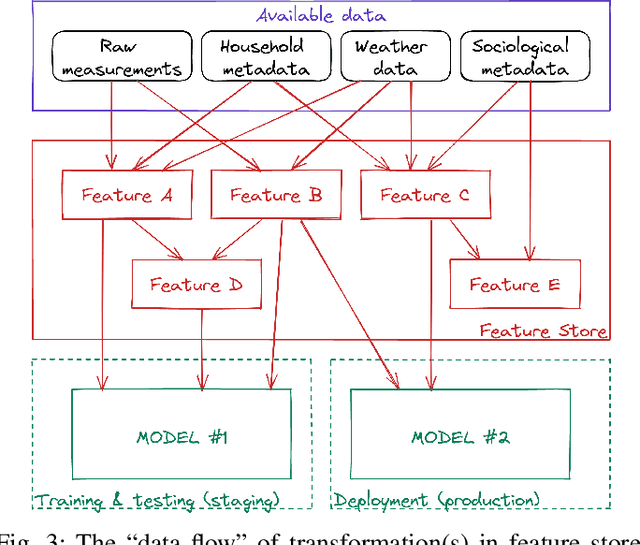
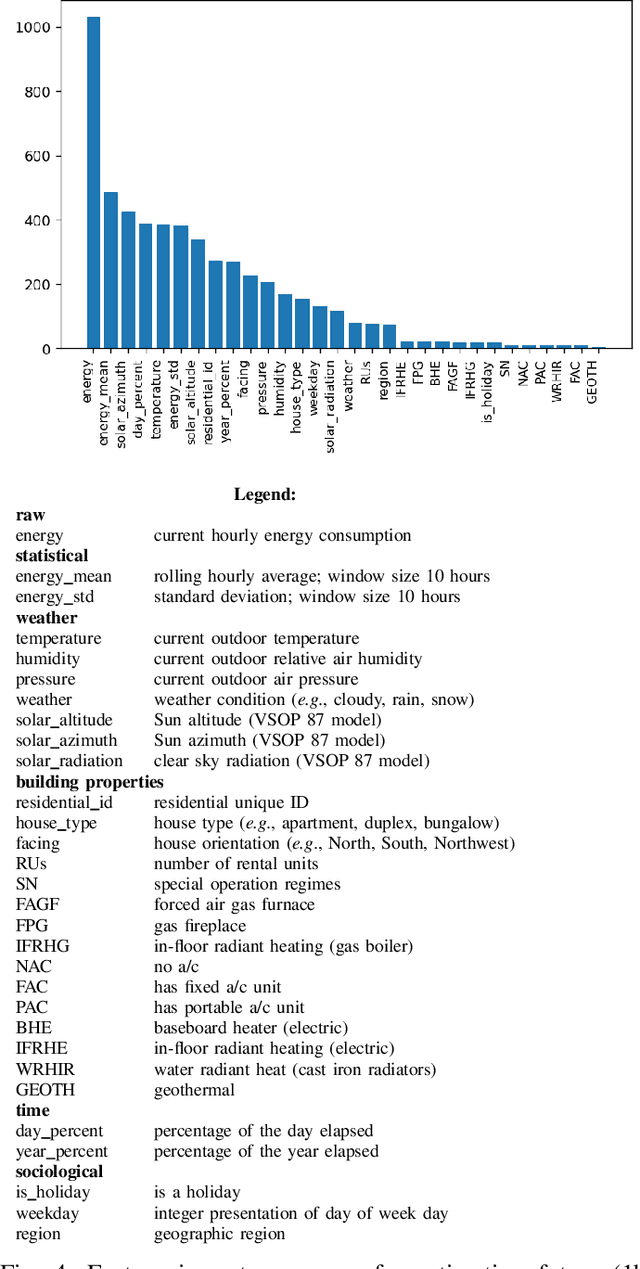
Abstract:The digitization of the energy infrastructure enables new, data driven, applications often supported by machine learning models. However, domain specific data transformations, pre-processing and management in modern data driven pipelines is yet to be addressed. In this paper we perform a first time study on data models, energy feature engineering and feature management solutions for developing ML-based energy applications. We first propose a taxonomy for designing data models suitable for energy applications, analyze feature engineering techniques able to transform the data model into features suitable for ML model training and finally also analyze available designs for feature stores. Using a short-term forecasting dataset, we show the benefits of designing richer data models and engineering the features on the performance of the resulting models. Finally, we benchmark three complementary feature management solutions, including an open-source feature store.
 Add to Chrome
Add to Chrome Add to Firefox
Add to Firefox Add to Edge
Add to Edge